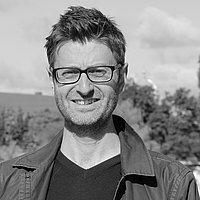Your boss has just thrown you out of the paper you have worked so hard in the last months. Or you accidentally discovered that your colleague has copied the results from another article. Or maybe your student has fabricated the data of his/her thesis and also the paper that followed is not immaculate. What should you do? Shut up and bite your fingernails, forever? Confront him/her, make a scene? Go to the police?
Actually, there’s another move you may opt for. Many European countries have set up a body dedicated to handle scientific misconduct. The German ‘Ombudsman für die Wissenschaft’ was established by the DFG in 1999. Based in Berlin, the board is made up by three scientists, which dutifully listen to other scientists’ stories of misconduct and ponder if it’s appropriate to further investigate and take action. One member of the board, Prof. Dr. Joachim Heberle from the Free University of Berlin, presented the Ombudsman activities at the 52nd Symposium on Theoretical Chemistry (STC2016) ‘Chemistry in Solution’ in RUB last September.
What misconduct means.
Heberle has a friendly and gentle approach, yet going to the Ombudsman is not an easy step. First of all, you have to be aware of the problem, recognize it. The case of Jan Hendrick Schoen is an extreme example of misconduct. Schoen, a German physicist working on molecular transistors at the Bell Labs, US, falsified and fabricated data in more than 20 articles appearing in prestigious peer reviewed journals. His acts were discovered by fellow physicists that noticed data anomalies, such as identical noise traces through various publications.
Fortunately, data fabrication is a pretty rare issue for the Ombudsman –in 2015, only 3% of the inquiries dealt with it. More popular disputes involve plagiarism, authorship conflicts, inadequate mentorship, even mere scientific disagreement (see Fig. 1). The DFG has drafted a series of recommendations for safeguarding good scientific practice. For example, scientists should adhere to absolute honestly and should keep track of primary data used in publications (i.e. raw data, probes) for at least ten years! Authors should bear full joint responsibility for a paper content, including the raw data. And supervisors should offer adequate, fair support to early career researchers.
Becoming a whistle blower.
Once you present your case to the Ombudsman, you become a whistle blower. The Ombudsman is bound to confidentiality, fairness and transparency. “Of course this is a narrow path”, admits Heberle, ”to combine confidentiality and transparency is not always straightforward”. The whistle blower is protected by confidentiality, but self-identification is paramount to guarantee truthfulness – anonymity is allowed only in the most severe cases.
The Ombudsman then evaluates the motivations of the whistle blower, the allegations to the defendant and the justification to follow up. Seeking an ad-hoc reviewer to scrutinize a publication, and contacting the defendant to ask for his/her take on the issue are also steps the investigator may take. Finally, a decision is made: “These are highly emotional issues, but we try as much as possible to moderate, to find a compromise that satisfies both parties”, said Heberle. Only in very severe cases, when the scientific misconduct might have legal consequences, the Ombudsman hands an inquiry over to a local university commission or to the German Research Foundation – which in the end may decide about sanctions.
The scientists going to the Ombudsman.
If you worry about being alone seeking justice or compensation through the Ombudsman, rest reassured. The number of inquiries for scientific misconduct is increasing since the dawn of the German Ombudsman (Fig. 2). “This doesn’t mean that the scientific enterprise is becoming more prone to misconduct”, explained Heberle, “only that the system we established works”.
But who are the candidate whistle blowers? Biomedical scientists constitute the most numerous group seeking help by the Ombudsman, but inquiries have covered the whole spectrum of scientific disciplines (Fig. 3). Misconduct is a stumbling block in the scientific journey that can happen anywhere, anytime. Hard science is not immune from it, but the participants of the STC2016 conference were relieved to hear that hardly any case has been related to theoretical chemistry.
————————————————————————————————————————————
About the author




